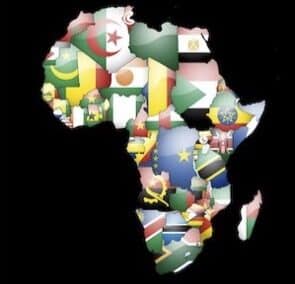The idea of a United States of Africa has been around since the days of Marcus Garvey’s 1924 poem “Hail, United States of Africa”, an idea later expanded on by former Libyan dictator Muammar Gaddafi.
Gaddafi himself is far from an ideal ambassador for this plan, not only because of Libya’s constant meddling in other countries’ affairs and Gaddafi’s own intimidation of other African leaders, something which was noted by former president Jacob Zuma in a News24 article in 2011. (https://www.news24.com/News24/AU-will-work-better-without-Gaddafi-Zuma-20111013)
With all of that said, I do believe that there is merit in the idea of Pan Africanism, especially if it is seen through the eye of a canton-style system as found in Switzerland, where the confederation is entrusted with areas such as the armed forces, currency, the postal service, telecommunications, immigration into and emigration from the confederation, granting asylum, conducting foreign relations with sovereign states, civil and criminal law, weights and measures, and customs duties.
Each participating state would then have its own constitution, police, executive, courts and police. There can even be “semi-cantons” which largely function in the same way as full participating states, which would allow provinces like the Western Cape to have more autonomy and control while remaining in the broader confederation of states.
How do we approach it? This is the tricky part. Perhaps a sensible first step would be doing this on a regional level where South Africa, Namibia, Botswana, Zambia, Mauritius and the Seychelles, as the fairly stable states in the region, would participate without crises that would upset and destabilise the other participating states.
Countries like Zimbabwe would have to be allowed in by other participating states after they’ve fulfilled criteria that the original participating states have adopted around individual liberty, free markets, a respect for human rights, freedom of the press, free speech, the rule of law, private property rights, etc.
A binding and organising motivation could be found in the idea that the confederation is designed to be an attractive and diversified investment area which prioritises jobs, economic growth and the free movement of goods, (skilled) people (labour market efficiency) and capital. The longer-term goal would be to beneficiate the various natural resources found within the confederation and also develop a vibrant and diversified internal economy built on the strengths of different participating states.
The stalling and perhaps even breakdown of the EU-Mercosur trade agreement should be instructive. If there was this confederation in existence, perhaps a trade deal could have been signed with the EU, which has been struggling with food inflation since the Russia-Ukraine War. Countries in this region have plentiful fertile land, and being the world’s food basket would be a boon, as would becoming the world’s factory as the region has a plentiful supply of young, low-skilled workers.
The confederation would also act as a bulwark against leaders who want to make sweetheart deals with states like China, which enrich their own pockets but ultimately impoverish their own people. (Zimbabwe specifically comes to mind).
Ultimately, I think that without a backbone of being an attractive investment destination, built on economic freedom, intra-trade, favourable business environments and therefore a confederation of mutual economic and job growth, the confederation may fall foul of xenophobia and stupid movements like Brexit which exacerbate the problems and issues which may arise.
For this confederation to work, it must be built in a way which resists command style, statist economics and politics and instead embraces a market economy premised on private property rights, individual liberty and economic freedom.
This confederation would not be at odds with the idea of decolonisation, as it embraces both a sensible and hopefully progressive African unity built on standards and an ideological base, which encourages investment, economic and jobs growth and the elimination of the reliance on foreign aid while respecting a localised and granular sort of self-determination and “state” sovereignty.
In other words, you will be able to participate as an African state, but you must meet the minimum standards already established and adhered to by already participating states. This will protect against unstable and potentially destructive regimes seeing confederation membership as a right while not adhering to best practice that assures mutual benefit.
Pan Africanism is a good idea so long as it is undergirded by accountability, transparency and common standards and values that lead to mutual benefit. African unity still needs to be sensible and have guard rails against weak and repressive states torpedoing a potentially lucrative union.
The views of the writer are not necessarily the views of the Daily Friend or the IRR.
If you like what you have just read, support the Daily Friend.

